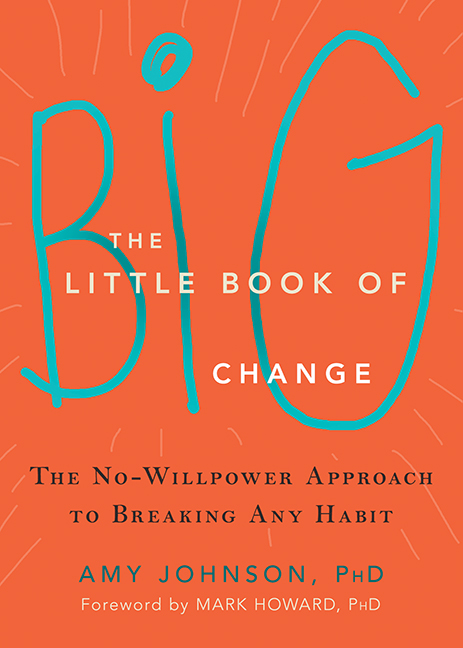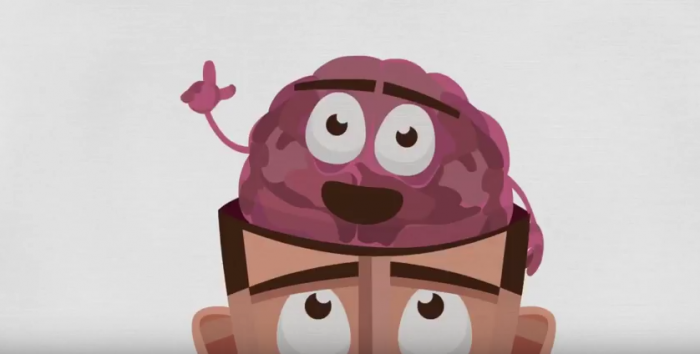By Amy Johnson, PhD, author of The Little Book of Big Change
Your lower brain is the most remarkable machine on earth.
Also called the reptilian brain, your lower brain is capable of incredible feats of intellect, memory, and logic. It keeps your body humming along by habitually beating your heart, breathing your lungs, and digesting your lunch while you get to focus on which shoes to wear, finishing that work project in time for the meeting, and voting for the winner of America’s Got Talent.
The sole purpose of your lower brain is to keep you alive using as little energy as possible. You get to use that extra energy for more fun, optional things in life.
It’s an incredibly kind design, isn’t it? And your lower brain is amazing at its job. As far as machines go, it’s the best. But because your lower brain is a computer, it has some limitations, too.
While your lower brain is really smart, it’s not very wise.
The biggest limitation is that while your lower brain is really smart, it’s not very wise. It is great at machine-like qualities like consistency and efficiency, but it is not so good at determining which habits it should keep around consistently.
Your lower brain doesn’t distinguish habits that keep you alive from habits that hurt you. It is a habit-creating, habit-maintaining powerhouse with little discrimination. So things like drinking, smoking, overeating, shopping, hoarding, and gambling done consistently can begin to look necessary for survival to your lower brain.
This might sound like bad news for you. But it’s actually not bad at all when you understand how it works.
See, just like your lower brain is smart but not wise, it’s also loud and persistent but not powerful in and of itself. When it comes to activities that require more voluntary choices and coordinated muscle movements, your lower brain can’t coordinate those. It is all bark and no bite.
Your brain is all bark and no bite.
The best it can do is create urges and pulls toward various behaviors. It can’t make you actually act, though, because your higher brain is needed for that.
See also: Brain Biology, BPD, and Mindfulness
When you don’t know better, your lower brain feels extremely powerful. You innocently give into the urges and cravings it produces because it doesn’t feel as if you have a choice. But when you understand how it works, you see that your lower brain is powerless. You don’t have to give into its demands.
When you don’t, it eventually stops demanding.
My favorite metaphor for how this works is that of a backseat passenger screaming at you while you are behind the wheel of a car. That loud, persistent guy in the backseat can scream all he wants, but he can’t do a thing—he’s in the backseat. You are the driver.
Can you begin to get a feel for the freedom there is in understanding how your lower brain works? Anything can show up in your experience…thoughts, feelings, cravings, urges…and you don’t have to act on any of them.
When you see them for what they are, you see that they never had the power we thought they did.
We’ve been free all along.
 Amy Johnson, PhD, is a master life coach who works with clients worldwide through coaching programs, workshops, and retreats. Since writing The Little Book of Big Change, she has devoted a large portion of her coaching practice to helping people end unwanted habits.
Amy Johnson, PhD, is a master life coach who works with clients worldwide through coaching programs, workshops, and retreats. Since writing The Little Book of Big Change, she has devoted a large portion of her coaching practice to helping people end unwanted habits.


 2024 Peace Playbook: 3 Tactics to Avoid Clashes with Your Partner
2024 Peace Playbook: 3 Tactics to Avoid Clashes with Your Partner